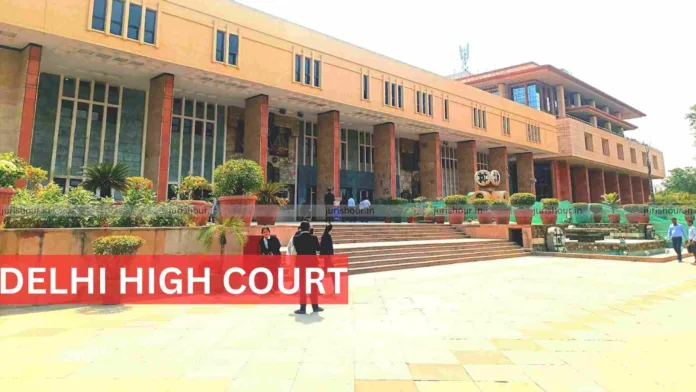The Delhi High Court has held that the delay in pronouncing an Arbitral Award in itself a ground to set it aside.
The bench of Justice Jasmeet Singh observed that the sole arbitrator had pronounced the award 19 months after the conclusion of hearings, undermining the credibility and fairness of the arbitral process.
The bench ruled that such a delay rendered the award contrary to the “public policy of India” as envisaged under Section 34(2)(b)(ii) of the Arbitration and Conciliation Act, 1996.
The dispute traces back to the Commonwealth Games 2010 contracts. GL Litmus, a joint venture formed by M/s GL Event Services and M/s Meroform (India) Pvt. Ltd., was engaged by the DDA to execute a turnkey project for temporary accommodation and overlays at the Commonwealth Games Village in Delhi.
Under the agreement, the company was responsible for providing facilities such as dining halls, religious centres, security structures, and other fitments. While the petitioner raised 18 invoices for completed work, it alleged that DDA withheld substantial dues, forcing it to invoke the arbitration clause in 2013.
A series of arbitrators resigned before the final incumbent delivered the award on 27 November 2017, dismissing all 16 claims raised by GL Litmus. The company then approached the High Court under Section 34 to challenge the award.
Senior Advocate P.V. Kapur, representing GL Litmus, contended that the award was pronounced nearly two years after hearings concluded, violating principles of natural justice. The arbitrator relied on unproved documents, including measurement books prepared unilaterally by DDA. The petitioner’s claims of duress and discrepancies in invoices were disregarded without reasoning. It was argued that the delay alone vitiated the arbitral process, citing past Delhi High Court precedents such as Harji Engineering Works Pvt. Ltd. v. BHEL and BWL Ltd. v. Union of India.
On the other hand, Senior Advocate Ramesh Singh for DDA defended the award, arguing that delay in pronouncement, while regrettable, is not automatically fatal to an award. The petitioner had endorsed the measurement books with “Bills and Measurement Accepted,” leaving little scope to dispute quantities or payments. GL Litmus failed to produce evidence to support claims of unpaid dues or coercion.
After reviewing precedents, court held that while the Arbitration Act does not explicitly prescribe a time limit for pronouncing awards (before the 2015 amendment introducing Section 29A), the principle of speedy dispute resolution is integral to the arbitral framework.
The Court emphasized that justice delayed is justice denied, even in arbitration. Inordinate delay risks eroding the arbitrator’s recollection of oral arguments, leading to unfair reliance on written submissions alone. Multiple reminders from both parties to the arbitrator underscored their loss of faith in the process.
The Court concluded that the 19-month delay, without justification, violated the most basic notions of justice and therefore struck down the arbitral award.
Case Details
Case Title: GL Litmus Events Pvt. Ltd. Versus Delhi Development Authority
Case No.: O.M.P. (COMM) 189/2018 & I.A. 47338/2024
Date: 01/09/2025
Counsel For Petitioner: P.V. Kapur, Sr. Adv.
Counsel For Respondent: Ramesh Singh, Sr. Adv

